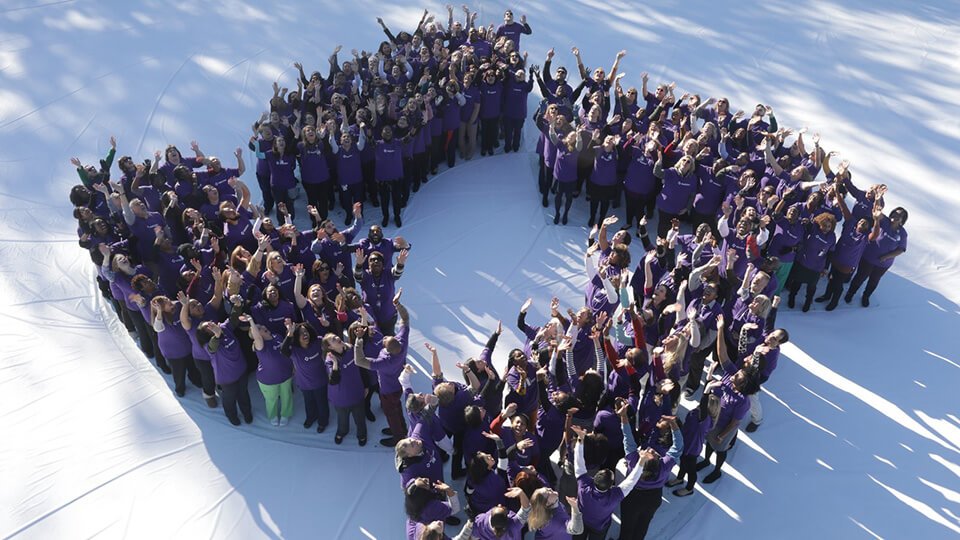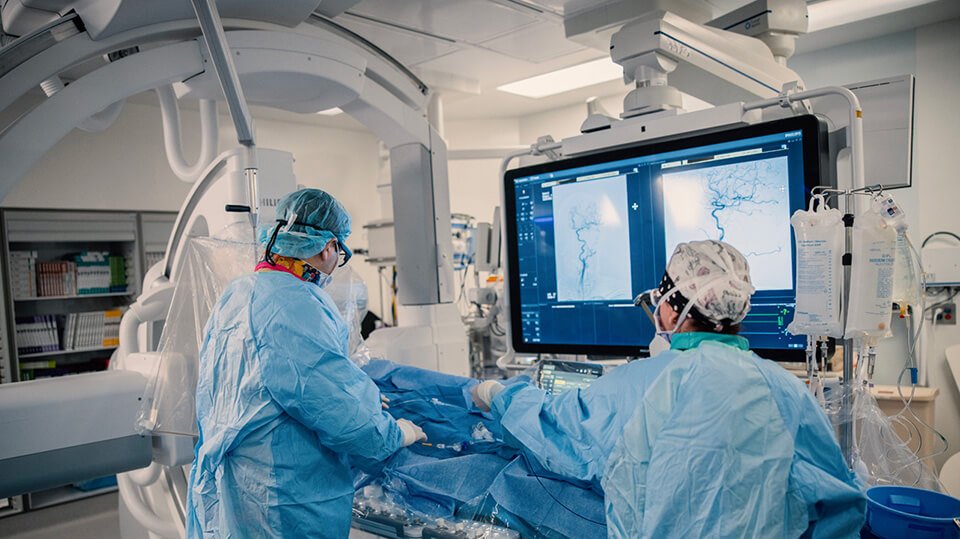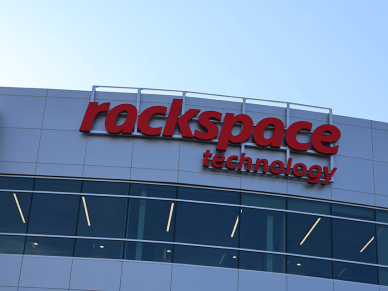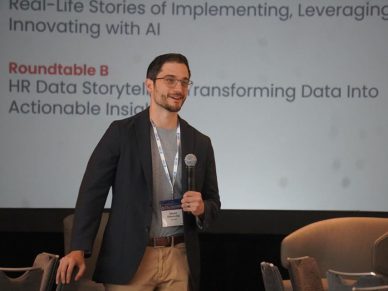At Wellstar Health System, the drive for excellence is rooted in security

The pandemic was a catalyst for personal change like no other. For security expert Richard “Rick” Kollmar, it was a turning point sparked by some very compelling inspiration: his family tradition of caregiving. “My brother is a doctor, my sister is a physical therapist, and my grandmother's a retired nurse. I saw the sacrifices that they were making,” he recently told BOSS.
Amidst the crisis, he made a decision after leaving his role as CSO for Honeywell International to turn his interests toward healthcare. “I had 25-plus years of experience in security, and I wanted to use that experience to protect those that are saving the lives of others.” Twenty of those years were spent in leadership roles at the FBI, including a Division Chief in the cyber division. He retired from the Washington, D.C., headquarters as Deputy Assistant Director in the National Security Division.
Today, as Vice President and Chief Security Officer at Wellstar Health System, Inc., Kollmar and his teams are responsible for the security of 32,000 employees, about 4 million patients and visitors who visit their campuses each year and securing roughly 18 million square feet of Georgia real estate. The $7 billion not-for-profit system is composed of 11 hospitals, 329 medical office locations, 11 cancer centers, 91 rehabilitation centers, 35 imaging centers, 20 urgent care locations, five health parks, three hospice facilities, and two retirement villages. And for the sixth time in the system’s history, this year Wellstar earned a place on the Fortune 100 Great Places to Work 2024 rankings.
Kollmar became the system’s first Chief Security Officer in 2022. “I thought that was the closest I could get to public service,” he recalled. “My time with the FBI was very rewarding and I knew there was a great need, especially in healthcare, for elevated security.

“Everything we touch has some sort of a network connection, but knowing how to be tactical and being able to have a very elevated and competent tactical response to security is extremely important,” he explained. “In the FBI, I was a SWAT commander and for nine years a SWAT Operator and a firearms instructor, so I have tactical experience.”
As important as it is to be tactical, it’s equally important to have a proactive security posture. In that regard, Kollmar instituted a Protective Intelligence Division within Wellstar Security which continuously monitors for threats against the system in an effort to identify a concern before it arrives on a Wellstar campus. Through Wellstar Security’s partnership with Thomson Reuters Special Services (TRSS), the Protective Intelligence Division leverages data, security intelligence, and analytic expertise to navigate modern complexities in healthcare security and identify physical threats before they occur. This proactive approach is what the FBI went to after 9/11 with the creation of its Intelligence Division. Kollmar’s experience at the FBI brought this mindset to Wellstar, incorporating analytics and intelligence in building a prevention-first strategy.
Prior to his arrival, security was a site-based model with budgets set by each hospital. Kollmar initiated a strategic plan to bring all security under corporate and shared services, which he now oversees. This allows for an over-arching, system-wide strategic plan for staffing, equipment, and initiatives. The corporate shared services model allows security to be laser-focused on controlling risk exposure with an increased level of operational maturity.
In 2022, the organization invested in a sweeping multi-year, multimillion-dollar initiative, Digital Operating Module, or DOM, as part of their ongoing tech transformation. “We're in the middle of it now, but it's all about making everything quicker, smoother, and more convenient especially for our healthcare providers, our clinicians, and our patients.”
“It spills over into security because we’re using that initiative with technology to integrate with IT and with cyber on the physical end of it. We have 32,000 employees, if somebody in one of our properties scans in with their ID and opens a door, we have physical access to that person.” Their network of 5,000 analog cameras has been upgraded to digital, enabling the addition of AI capabilities on the cameras and the network.

Using AI on the network makes searching fast and accurate. Digital cams are posted at every entry and exit point, as well as in security sensitive areas, and keys have been replaced by swipe cards.
“Technology can bring anomalies in alerts together immediately, shut down the access until we figure out what just happened, and then, using our digital camera system, we can pull up that door … to see the physical access,” he said. Wellstar uses pioneering mobile camera technology from LiveView Technologies (LVT) to add security to difficult-to-monitor areas of Wellstar property.
“We've just recently added a high-tech weapon detection system,” he said. “With the capability of being integrated with our camera system so that if somebody is coming into the hospital and later, we want to identify where that person is in the hospital, we can request a search of our cameras to identify where that person is and track when they came into the hospital. We know exactly where they've gone and where they are at the present time. Technology makes that possible. It’s another big area that we're integrating with IT.”
Because a typical metal detector scans for everything that is metal, i.e., phones, keys, pens, etc., it is unsuitable for hospital use. “A TSA type of screening doesn’t work in the healthcare situation because you can't have any backups in the emergency department,” he explained. “Our hospital emergency departments are unbelievable busy.” Giving medical attention, and doing so in the safest manner possible, is the highest priority.
To compensate, in June of this year they installed an industry leading, AI powered weapon detection technology used in many sporting arenas, where three or four people coming through the detector can be successfully screened. Technology differentiates items clearly and focuses on identifying weapons. The system has been successful in stopping weapons of all types, to include guns, knives, and tasers to name a few. Kollmar noted that due to its touchless efficiency and high speed, most people don't realize they're going through a sophisticated weapon detection screening system.
To further blend physical and digital security, Wellstar is building an integrated security operations center (SOC) as part of the DOM initiative. The SOC will be just one part of a state-of-the-art training center where security officers will take part in virtual reality de-escalation exercises.
“They put on a headset, and we will place the officer in a simulated healthcare environment, and then they can then virtually interact with patients who need intervention or with hostile patients on how to de-escalate the situation before it becomes violent,” Kollmar said.
Trainers will present scenarios and change their virtual patients’ reactions based on the officers’ command of de-escalation techniques. Say the wrong thing, and the virtual patient will become more hostile. Employ the proper techniques, and the virtual patient will calm down. The firearms-certified officers will also be able to do VR target practice and Taser practice in the facility.
The SOC will consolidate security operations for all Wellstar’s hospitals – a 12th is being built next year – into one centralized dispatch center. Any anomalies caught by the system’s 5,000 cameras will trigger an alert that goes to the operations center, ensuring an immediate response.

With their eyes on everything, officers in the SOC will be in a position to provide virtual escorts for employees, to their vehicles, at any of Wellstar’s hospitals or medical facilities via live feed and two-way communication using Prepared911.
“A record is being made of that escort and instantly, if needed, our security team can transfer that call to 911. Once it’s transferred, 911 can see the same video feed that our security team is seeing,” he said. “Not only can they see the video, as long as the person has their cell phone, the 911 operator also has their exact GPS location. Our home health caregivers visiting patients’ homes will also have access to our remote escort.
“We're making this so that we can expand as our system expands and that will all be part of our Wellstar security training center and SOC.”
Wellstar’s unprecedented increase in its security investments has made it possible to revolutionize physical and digital security and to increase its number of security personnel.
“Good technology – our advanced weapon detection system, advanced visitor management system, our camera analytics – still needs good people to run it and react to alerts,” Kollmar concluded. “I believe that technology is key to a physically safe environment and people, and well-trained officers are key to being able to use that technology to keep people safe.”
Wellstar has a deep-rooted community character: one that’s led generations of clinicians to serve, generations of patients to seek care, and generations of team members to seek employment within our health system.
Today, we’re one of the largest and most integrated healthcare systems in Georgia with more than 32,000 team members—including 6,000 nurses and more than 3,000 physicians and advanced practitioners—providing compassionate, high-quality care. We’re also the only health system with a network of Level 1, Level 2, and Level 3 trauma centers in metro Atlanta. These centers help us serve the most critical patients with a range of emergency care options.
Together, we’re proud to have served one out of every six Georgians, including patients from 148 out of 159 Georgia counties. And our journey continues as we work to reach patients and families in new communities in new ways—ever in the pursuit of the best in innovative, world-class healthcare close to home.
Corporate Office
793 Sawyer Road
Marietta, GA 30066
Phone Number: 470.644.0232
Homepage Link: https://www.wellstar.org/
Facebook: https://www.facebook.com/wellstarhealthsystem
X: https://x.com/i/flow/login?redirect_after_login=%2FWellstarhealth
LinkedIn: https://www.linkedin.com/company/wellstar-health-system/
YouTube: https://www.youtube.com/wellstarhealthsystem
Instagram: https://www.instagram.com/wellstarhealth/















